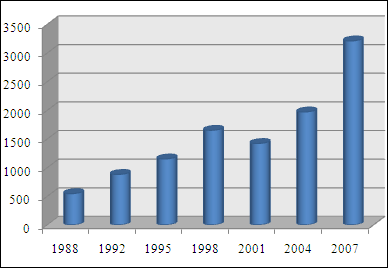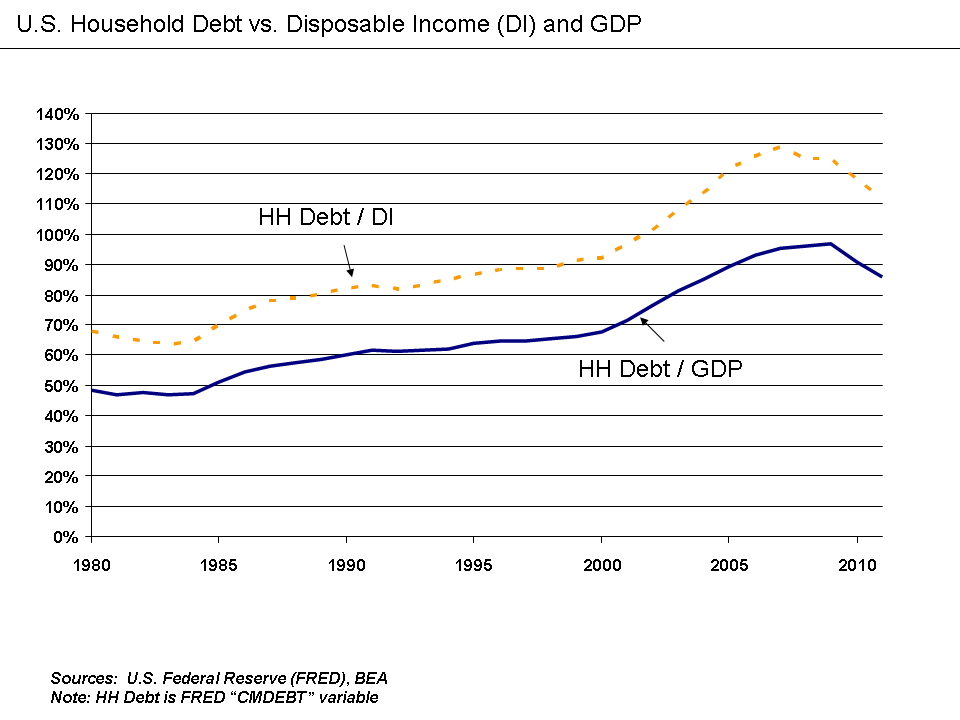|
Endaka
Endaka ( ja, 円高, lit. ''yen expensive'') or ''Endaka Fukyo'' ( ja, 円高不況, lit. ''yen expensive recession'') is a state in which the value of the Japanese yen is high compared to other currencies. Since the economy of Japan is highly dependent on exports, this can cause Japan to fall into an economic recession. The opposite of ''endaka'' is ''en'yasu'' ( ja, 円安, lit. ''yen inexpensive''), where the yen is low relative to other currencies. History Origins The origins of endaka began in 1971 with the Smithsonian Agreement. The term was coined with the first usage in 1985 during the Plaza Accord, in which the yen was revalued sharply overnight. However, its use in the context of recession was first used in 1992, when Japan's economy slowed down, and again in 1995, when the yen hit its then-postwar high of 79 to the dollar. Japan has struggled to keep its yen low to aid exporters. China, Singapore and Hong Kong typically have a target exchange rate, and they buy ... [...More Info...] [...Related Items...] OR: [Wikipedia] [Google] [Baidu] |
Carry (investment)
The carry of an asset is the return obtained from holding it (if positive), or the cost of holding it (if negative) (see also Cost of carry). For instance, commodities are usually negative carry assets, as they incur storage costs or may suffer from depreciation. (Imagine corn or wheat sitting in a silo somewhere, not being sold or eaten.) But in some circumstances, appropriately hedged commodities can be positive carry assets if the forward/futures market is willing to pay sufficient premium for future delivery. This can also refer to a trade with more than one leg, where you earn the spread between borrowing a low carry asset and lending a high carry one; such as gold during financial crisis, due to its safe haven quality. Carry trades are not usually arbitrages: pure arbitrages make money no matter what; carry trades make money ''only if nothing changes'' against the carry's favor. Interest rates carry trade / Maturity transformation For instance, the traditional revenue ... [...More Info...] [...Related Items...] OR: [Wikipedia] [Google] [Baidu] |
Plaza Accord
The Plaza Accord was a joint–agreement signed on September 22, 1985, at the Plaza Hotel in New York City, between France, West Germany, Japan, the United Kingdom, and the United States, to depreciate the U.S. dollar in relation to the French franc, the German Deutsche Mark, the Japanese yen and the British Pound sterling by intervening in currency markets. The U.S. dollar depreciated significantly from the time of the agreement until it was replaced by the Louvre Accord in 1987. Some commentators believe the Plaza Accord contributed to the Japanese asset price bubble of the late 1980s. Background The tight monetary policy of Federal Reserve's Chairman Paul Volcker and the expansionary fiscal policy of President Ronald Reagan's first term in 1981-84 pushed up long-term interest rates and attracted capital inflow, appreciating the dollar. The French government was strongly in favor of currency intervention to reduce it, but US administration officials such as Treas ... [...More Info...] [...Related Items...] OR: [Wikipedia] [Google] [Baidu] |
Japanese Asset Price Bubble
The was an economic bubble in Japan from 1986 to 1991 in which real estate and stock market prices were greatly inflated. In early 1992, this price bubble burst and Japan's economy stagnated. The bubble was characterized by rapid acceleration of asset prices and overheated economic activity, as well as an uncontrolled money supply and credit expansion.Kunio Okina, Masaaki Shirakawa, and Shigenori Shiratsuka (February 2001):The Asset Price Bubble and Monetary Policy: Japan's Experience in the Late 1980s and the Lessons More specifically, over-confidence and speculation regarding asset and stock prices were closely associated with excessive monetary easing policy at the time.Edgardo Demaestri, Pietro Masci (2003): Financial Crises in Japan and Latin America, Inter-American Development Bank Through the creation of economic policies that cultivated the marketability of assets, eased the access to credit, and encouraged speculation, the Japanese government started a prolonged and ... [...More Info...] [...Related Items...] OR: [Wikipedia] [Google] [Baidu] |
Foreign Exchange Reserves
Foreign exchange reserves (also called forex reserves or FX reserves) are cash and other reserve assets such as gold held by a central bank or other monetary authority that are primarily available to balance payments of the country, influence the foreign exchange rate of its currency, and to maintain confidence in financial markets. Reserves are held in one or more reserve currencies, nowadays mostly the United States dollar and to a lesser extent the euro. Foreign exchange reserves assets can comprise banknotes, bank deposits, and government securities of the reserve currency, such as bonds and treasury bills. Some countries hold a part of their reserves in gold, and special drawing rights are also considered reserve assets. Often, for convenience, the cash or securities are retained by the central bank of the reserve or other currency and the "holdings" of the foreign country are tagged or otherwise identified as belonging to the other country without them actually leavi ... [...More Info...] [...Related Items...] OR: [Wikipedia] [Google] [Baidu] |
2011 U
Eleven or 11 may refer to: * 11 (number), the natural number following 10 and preceding 12 * one of the years 11 BC, AD 11, 1911, 2011, or any year ending in 11 Literature * ''Eleven'' (novel), a 2006 novel by British author David Llewellyn *''Eleven'', a 1970 collection of short stories by Patricia Highsmith *''Eleven'', a 2004 children's novel in The Winnie Years by Lauren Myracle *''Eleven'', a 2008 children's novel by Patricia Reilly Giff *''Eleven'', a short story by Sandra Cisneros Music * Eleven (band), an American rock band * Eleven: A Music Company, an Australian record label * Up to eleven, an idiom from popular culture, coined in the movie ''This Is Spinal Tap'' Albums * ''11'' (The Smithereens album), 1989 * ''11'' (Ua album), 1996 * ''11'' (Bryan Adams album), 2008 * ''11'' (Sault album), 2022 * ''Eleven'' (Harry Connick, Jr. album), 1992 * ''Eleven'' (22-Pistepirkko album), 1998 * ''Eleven'' (Sugarcult album), 1999 * ''Eleven'' (B'z album), 2000 * ''Eleven' ... [...More Info...] [...Related Items...] OR: [Wikipedia] [Google] [Baidu] |
Foreign Exchange Market
The foreign exchange market (Forex, FX, or currency market) is a global decentralized or over-the-counter (OTC) market for the trading of currencies. This market determines foreign exchange rates for every currency. It includes all aspects of buying, selling and exchanging currencies at current or determined prices. In terms of trading volume, it is by far the largest market in the world, followed by the credit market. The main participants in this market are the larger international banks. Financial centers around the world function as anchors of trading between a wide range of multiple types of buyers and sellers around the clock, with the exception of weekends. Since currencies are always traded in pairs, the foreign exchange market does not set a currency's absolute value but rather determines its relative value by setting the market price of one currency if paid for with another. Ex: USD 1 is worth X CAD, or CHF, or JPY, etc. The foreign exchange market works ... [...More Info...] [...Related Items...] OR: [Wikipedia] [Google] [Baidu] |
Finance In Japan
Finance is the study and discipline of money, currency and capital assets. It is related to, but not synonymous with economics, the study of production, distribution, and consumption of money, assets, goods and services (the discipline of financial economics bridges the two). Finance activities take place in financial systems at various scopes, thus the field can be roughly divided into personal, corporate, and public finance. In a financial system, assets are bought, sold, or traded as financial instruments, such as currencies, loans, bonds, shares, stocks, options, futures, etc. Assets can also be banked, invested, and insured to maximize value and minimize loss. In practice, risks are always present in any financial action and entities. A broad range of subfields within finance exist due to its wide scope. Asset, money, risk and investment management aim to maximize value and minimize volatility. Financial analysis is viability, stability, and profitability assessment ... [...More Info...] [...Related Items...] OR: [Wikipedia] [Google] [Baidu] |
2010 European Sovereign Debt Crisis
The European debt crisis, often also referred to as the eurozone crisis or the European sovereign debt crisis, is a multi-year debt crisis that took place in the European Union (EU) from 2009 until the mid to late 2010s. Several eurozone member states (Greece, Portugal, Ireland, Spain, and Cyprus) were unable to repay or refinance their government debt or to bail out over-indebted banks under their national supervision without the assistance of third parties like other eurozone countries, the European Central Bank (ECB), or the International Monetary Fund (IMF). The eurozone crisis was caused by a balance-of-payments crisis, which is a sudden stop of foreign capital into countries that had substantial deficits and were dependent on foreign lending. The crisis was worsened by the inability of states to resort to devaluation (reductions in the value of the national currency) due to having the Euro as a shared currency. Debt accumulation in some eurozone members was in part due ... [...More Info...] [...Related Items...] OR: [Wikipedia] [Google] [Baidu] |
Credit Crunch
A credit crunch (also known as a credit squeeze, credit tightening or credit crisis) is a sudden reduction in the general availability of loans (or credit) or a sudden tightening of the conditions required to obtain a loan from banks. A credit crunch generally involves a reduction in the availability of credit independent of a rise in official interest rates. In such situations, the relationship between credit availability and interest rates changes. Credit becomes less available at any given official interest rate, or there ceases to be a clear relationship between interest rates and credit availability (i.e. credit rationing occurs). Many times, a credit crunch is accompanied by a flight to quality by lenders and investors, as they seek less risky investments (often at the expense of small to medium size enterprises). Causes A credit crunch is often caused by a sustained period of careless and inappropriate lending which results in losses for lending institutions and investor ... [...More Info...] [...Related Items...] OR: [Wikipedia] [Google] [Baidu] |
Bank Of Japan
The is the central bank of Japan. Nussbaum, Louis Frédéric. (2005). "Nihon Ginkō" in The bank is often called for short. It has its headquarters in Chūō, Tokyo. History Like most modern Japanese institutions, the Bank of Japan was founded after the Meiji Restoration. Prior to the Restoration, Japan's feudal fiefs all issued their own money, ''hansatsu'', in an array of incompatible denominations, but the ''New Currency Act'' of Meiji 4 (1871) did away with these and established the yen as the new decimal currency, which had parity with the Mexican silver dollar. The former han (fiefs) became prefectures and their mints became private chartered banks which, however, initially retained the right to print money. For a time both the central government and these so-called "national" banks issued money. A period of unanticipated consequences was ended when the Bank of Japan was founded in Meiji 15 (10 October 1882), under the Bank of Japan Act 1882 (27 June 1882), after a ... [...More Info...] [...Related Items...] OR: [Wikipedia] [Google] [Baidu] |



.png)

